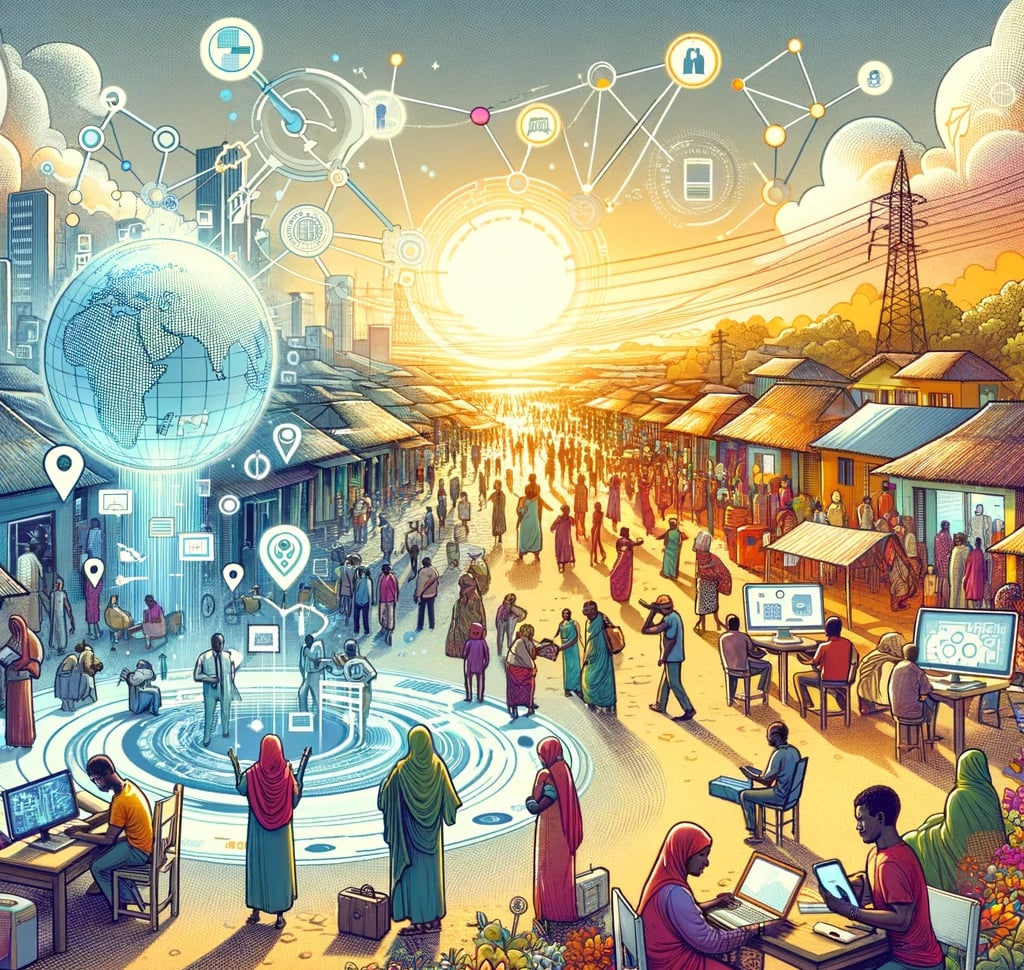What is Data Democratization: The Way for a New Economic Frontier in Developing Nations
Bureau of Society and Transformation
2/10/20243 min read


In the shadow of towering data centers and the omnipresent cloud, a revolution quietly brews—a revolution poised to redefine the very fabric of economic growth and democratic governance in developing nations. As we navigate through 2024,
the digital age not only promises exclusivity but heralds the era of data democratization.
Data, once the guarded treasure of tech behemoths, now emerges as the beacon of hope for nations striving to leapfrog developmental constraints.
The Dawn of the Data Commons
Imagine a world where data flows as freely as water, nurturing innovation and growth across the parched landscapes of developing economies. Sri Lanka's fishermen, Brazilian farmers, Bangladeshi weavers, and Vietnamese entrepreneurs, all harness open data to predict market trends, understand climate patterns, and connect with global markets. This is not a distant dream but an impending reality as the concept of data democratization takes root.
Governance: The Keystone of the Digital Economy
The journey to an open data ecosystem is fraught with challenges, most notably governance. How do nations ensure data quality, privacy, and accessibility? The answer lies in a collaborative framework where governments, private entities, and NGOs coalesce to create robust data governance structures. The Indian government's non-personal data governance framework and the EU's data governance act spotlight the global endeavor to balance economic growth with equitable data distribution.
2024: A Crucial Juncture
The year 2024 stands as a critical juncture, with democracy itself at a crossroads. Elections in the United States, India, Taiwan, and Indonesia will not only shape domestic policies but also the global discourse on democracy and data governance. The outcomes of these democratic processes, intertwined with the fabric of data democratization, will influence global alliances, economic policies, and the digital economy's trajectory.




The Global Economy: Fractures and Opportunities
As the world grapples with inflation, a slowing Chinese economy, and the splintering of global economic blocs, developing nations find themselves at an inflection point. The equitable distribution of data offers a lifeline, a chance to foster innovation, stimulate economic growth, and navigate the tumultuous waters of the global economy.
Unleashing Economic Potential through Data
The path to harnessing the full potential of data in developing nations is illuminated by success stories of data-driven decision-making. From improved agricultural yields to enhanced market access and innovation in healthcare, the democratization of data holds the key to unlocking vast economic opportunities.
The Road Ahead
As we gaze into the horizon of 2024 and beyond, the narrative of data democratization unfolds as a saga of resilience, innovation, and collective growth. Developing nations, empowered by open data, stand ready to redefine their destinies, charting a course toward sustainable development and inclusive growth.
In this digital age, data democratization emerges not just as a policy imperative but as a moral compass, guiding the world towards a future where technology serves as a bridge, not a barrier, for economic prosperity and democratic governance.
(With AI Input)
Who We Are:
The Economic Nations champions global unity through economic collaboration, focusing on sustainable growth, reducing inequalities, and enhancing global relationships for mutual prosperity and peace.


Contacts
enquiry@economicnations.org
(xx) 98-11-937-xxx (On verification)
